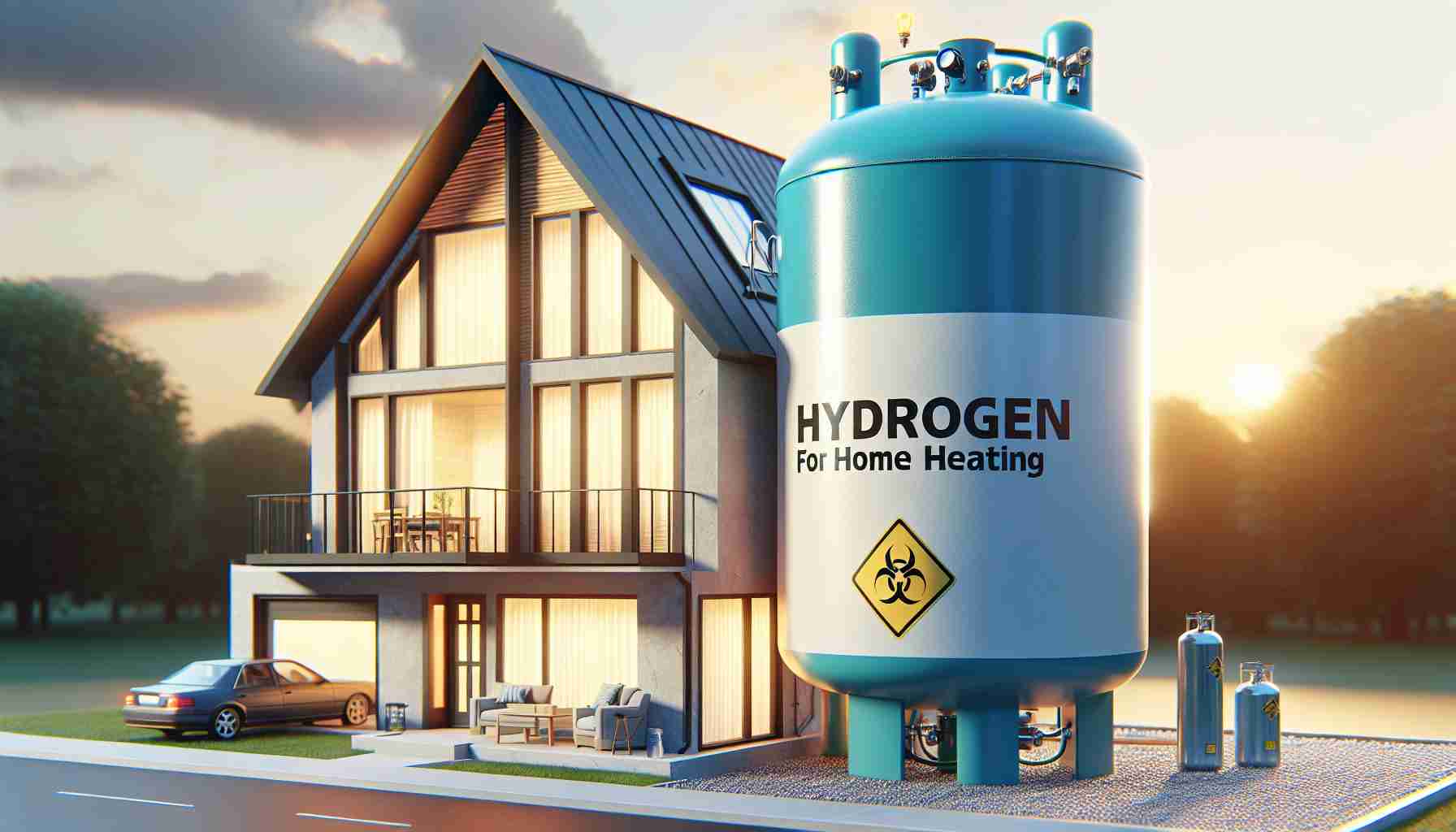The Reality of Hydrogen Use in Homes
The push for hydrogen blending with methane for home heating and cooking is encountering serious scrutiny. Experts warn that such initiatives may disregard vital safety and health concerns associated with hydrogen usage. High levels of hydrogen blending can pose significant dangers for residents, as these mixtures may lead to hazardous situations within homes.
Furthermore, investing in hydrogen heating could stall the transition to electrification. The combustion of gases, including hydrogen, prolongs the reliance on fossil fuels, which poses ongoing health risks to inhabitants. Energy efficiency measures and heat pumps are emerging as stronger alternatives, presenting a more pragmatic approach to tackling carbon emissions.
Transporting hydrogen adds another layer of complexity, as it necessitates more energy-intensive processes compared to natural gas. Even when sourced sustainably, hydrogen production and combustion are not without environmental impact; they can produce nitrogen oxides and have higher leakage rates than traditional methane.
Amidst these challenges, the home hydrogen market faces intense competition and supply issues that could limit availability. Stakeholders are urged to rethink their strategies: focusing on sustainable solutions like wind, solar energy, and battery storage instead of betting on hydrogen’s futuristic promise. In conclusion, hydrogen reliance in residential settings may be an unrealistic goal, overshadowed by more effective energy alternatives.
The Broader Implications of Hydrogen in Residential Energy Use
The ongoing exploration of hydrogen as a viable energy source for home heating and cooking reflects a critical crossroads for the future of energy consumption. Its adoption is not merely a technical question; it intertwines deeply with societal and economic threads that shape our modern world. As communities grapple with the urgency of climate change, hydrogen blending initiatives face profound ethical considerations concerning safety and public health. The potential hazards of utilizing hydrogen in residential environments raise alarms not just for individuals, but also for broader community health, requiring meticulous scrutiny from policymakers and health experts.
In terms of cultural implications, reliance on hydrogen could signify a retrograde step in our collective move towards sustainable solutions. Investments directed towards hydrogen might divert critical resources from proven technologies like heat pumps and solar energy, which can deliver immediate benefits in reducing carbon footprints. This redirection of focus poses risks; countries that commit heavily to hydrogen may lag in their transitions to a truly renewable energy infrastructure.
Moreover, the economic landscape is poised for transformation. The inefficiencies in hydrogen production and the complexities of its transport point to possible inflationary pressures in energy markets, especially in a global economy still dependent on fossil fuels. Facing potential volatility, consumers and businesses alike may seek alternative renewable solutions, catalyzing a shift toward a more secure and sustainable energy future. Ultimately, the long-term significance of hydrogen in residential settings hinges not only on technological advancements but also on a broader understanding of its implications for health, safety, and the environment.
Hydrogen for Home Heating: Is It Worth the Risk?
The Reality of Hydrogen Use in Homes
The conversation around the integration of hydrogen into home heating systems has intensified, drawing both interest and concern. As households look for alternatives to fossil fuels, the concept of blending hydrogen with methane for heating and cooking poses significant safety and health challenges that demand thorough consideration.
# Key Concerns About Hydrogen Blending
Hydrogen blending with methane is not without its risks. Experts highlight potential dangers, particularly when the blending ratio reaches higher levels. This increase in hydrogen concentration can create hazardous conditions that may compromise home safety. Therefore, thorough risk assessments and safety protocols need to be developed before these systems are widely implemented.
# The Electrification Debate
Investing heavily in hydrogen heating systems could hinder the shift toward full electrification. By continuing to use combustion-based technologies, this approach risks entrenching fossil fuel dependency, which has well-documented health implications. Instead, energy efficiency improvements and technologies like heat pumps are emerging as more effective solutions for reducing carbon emissions and transitioning to renewable energy.
# Hydrogen Transportation Challenges
The logistics of transporting hydrogen is another critical aspect to consider. Unlike natural gas, hydrogen requires more energy-intensive processes for distribution, raising concerns about overall energy efficiency. Even when produced through green methods, hydrogen’s production can contribute to environmental issues, such as emitting nitrogen oxides while also presenting higher leakage rates than methane.
# Current Market Dynamics
The landscape for home hydrogen systems is characterized by fierce competition and potential supply constraints. This could impact availability and make large-scale adoption difficult. As stakeholders evaluate the viability of hydrogen, there is a pressing need to pivot toward sustainable energy solutions. Options like solar, wind energy, and energy storage systems present a compelling case for a more reliable and environmentally friendly energy future.
# Pros and Cons of Hydrogen Heating
Pros:
– Potential to reduce reliance on fossil fuels.
– May integrate with existing natural gas infrastructure.
– Can be produced sustainably in the long term.
Cons:
– Significant safety risks associated with high hydrogen concentrations.
– Challenges in transportation and distribution efficiency.
– Could slow down the transition to electrification, which offers a more sustainable path.
# Future Outlook and Recommendations
As the industry evaluates the role of hydrogen in residential settings, a strategic focus on sustainable energy alternatives appears essential. Innovations in battery storage, the proliferation of renewable energy, and energy efficiency technologies should take precedence. The potential of hydrogen, while promising in theory, may not translate into practical solutions for home heating given the current technological and logistical hurdles.
For more in-depth analysis and the latest updates on energy solutions, visit Energy.gov.
This strategic shift could not only help mitigate health risks associated with gas combustion but also lead to a greener, more sustainable future in home energy consumption.


